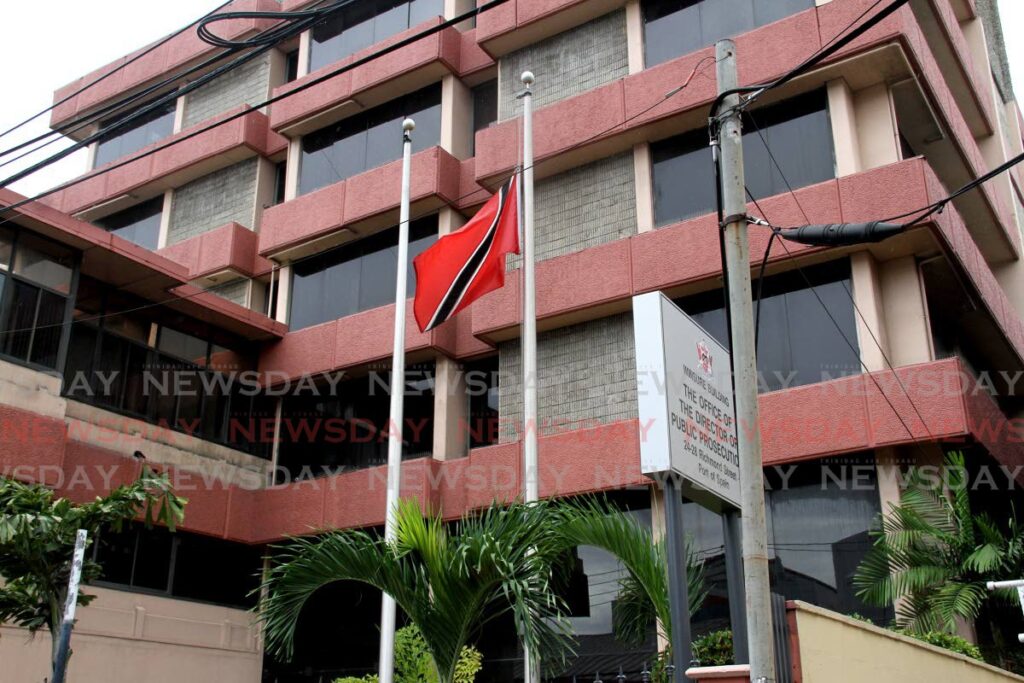An injustice to the DPP

My welcome to the new Attorney General and Minister of Legal Affairs Reginald Armour, SC, is partly based in the hope that he will have among his top priorities, joining with the Judicial and Legal Services Commission to improve the staffing and resources at the Director of Public Prosecutions’ office.
The offices of the Director of Pubic Prosecutions (DPP) and the Judiciary are two primary institutions which represent the public interest in matters of crime and justice. And, therefore, when the public hears the repeated appeals of the DPP, Senior Counsel Roger Gaspard, for appropriate staffing and procedural conditions, there should be widespread alarm and concern.
Last month, in an affidavit referring to the Appeal Court’s ruling that people accused of murder would now have the opportunity to apply for bail, Mr Gaspard noted his office now has, in effect, only 46 attorneys out of the 137 which Cabinet-approved in 2013. The injustice to the public interest is that the DPP has complained about this severe under-staffing problem repeatedly.
As the DPP said in his eloquent affidavit, court delays will increase with this bail option for murder accused (now some 1,200 of them) and the return to jury trials. “An impossible task, a grave risk of injustice,” he declared.
The DPP should also provide data on the proportion of resignations from his office in last 20 years and suggest why. Is it mainly because the private bar pays more? Being a judge or a state prosecutor in the pursuit of justice is a very noble calling. Could this DPP matter be now robustly discussed by AG Armour at Cabinet and the Criminal Justice Sector Committee which comprises the key professionals in the administration of justice – Chief Justice, DPP, Public Defenders Department, Law Association, Commissioner of Police, Prisons Commissioner?
It continues to be a symptom of crisis-driven management. It’s only when a firecracker complaint is made, like that recently made on trial delays by Dr Rowley, that crocodile tears flow, only to quickly subside.
Given Dr Rowley’s concern over seemingly unjustified trial delays, this DPP matter should now receive top priority solution. How to shape a resolution that would be fair to the private bar, the DPP, the judiciary and citizens awaiting trial?
Attorney Anand Ramlogan, SC, put up a case for murder accused Akilli Charles, in that Charles was remanded for a very long time and the Bail Act of 1994 (Section 5(1)) adversely affected the accused rights in certain circumstances as well as the core discretionary function of judges for bail. A residual point here is that since such bail option is being granted to murder accused, what about others on remand with no bail for lesser offences and for similar or greater length of time?

This apart, the entire administration of justice – from police, courts to prisons – has become such a tangled web of disconnections, delays, social injustice and related dysfunctions that, for example, while the remand yard remains congested with no-bail inmates, the DPP office remains severely understaffed. This is an injustice to both these voiceless inmates and the DPP.
The added mischief of maladministration is that there have been several inquiries and reports to help heal the wounded system, especially regarding trial delays. It isn’t about money and buildings alone. For example, in 1992 there was the Cabinet-appointed eight-member committee headed by attorney Dennis Gurley “to advise on systems to reduce existing delays in the administration of justice.”
Almost 50 recommendations were made to improve performance and reducing delays by the Supreme Court, magistrate courts, rules of court and judicial procedures, sentencing, etc. Some 30 years now, the question arises: What happened to these recommendations? Such committees indicate the number of civic-minded people who offer public service but left wondering about their recommendations.
In fact, some 20 years ago, there was another Cabinet-appointed committee headed by the late Sir Ellis Clarke to review court delays and case backlog especially in the magistrate courts, etc. (Other members: former justice Guya Persaud, UWI law school principal Jim Davis, police commissioner Jules Bernard, Chamber of Commerce president Frank Mouttet and myself.) What happened to those recommendations? Trial delays yes, but what about political delays? The patient Mr Gaspard strives to carry on but the injustice must be corrected.
Over to AG Armour, SC.


Comments
"An injustice to the DPP"